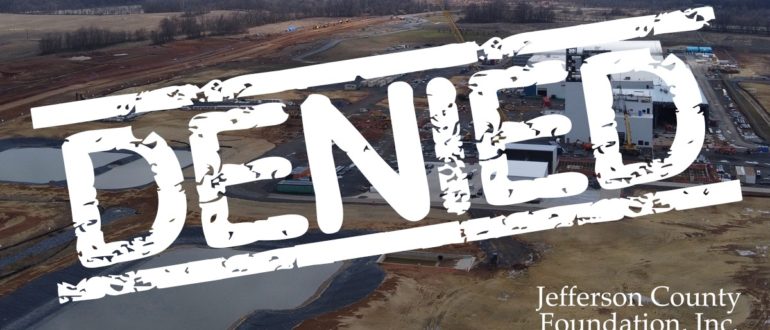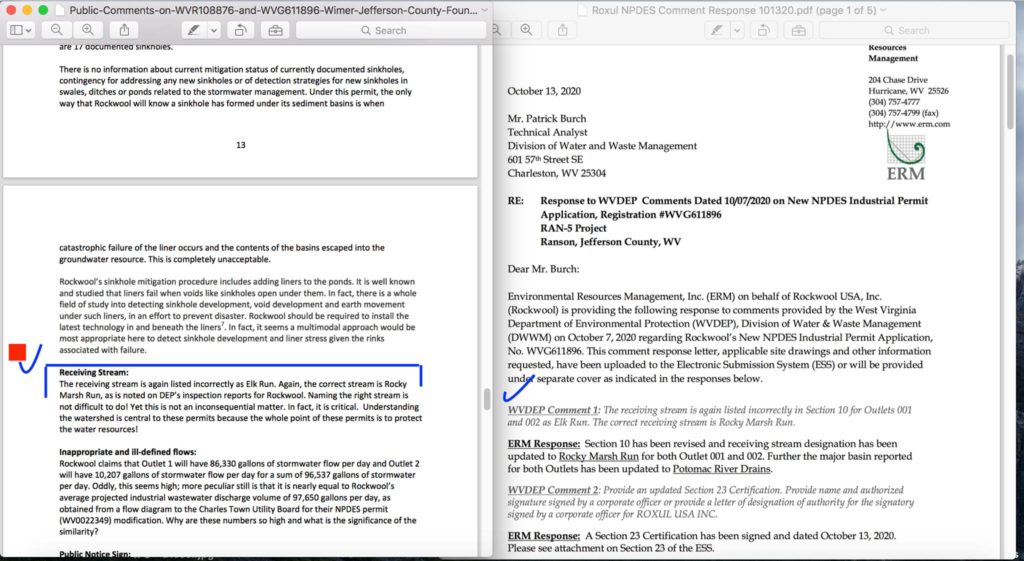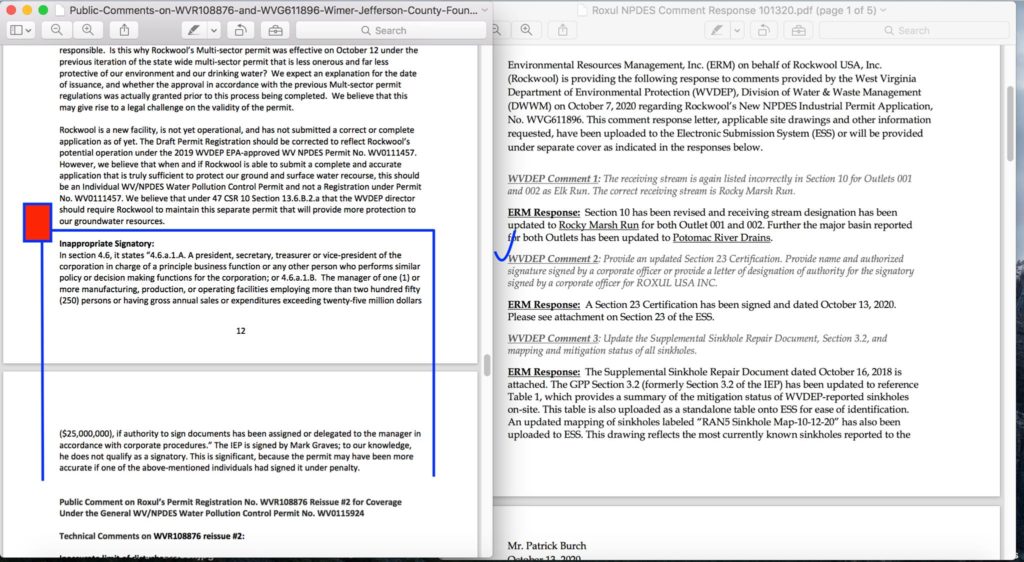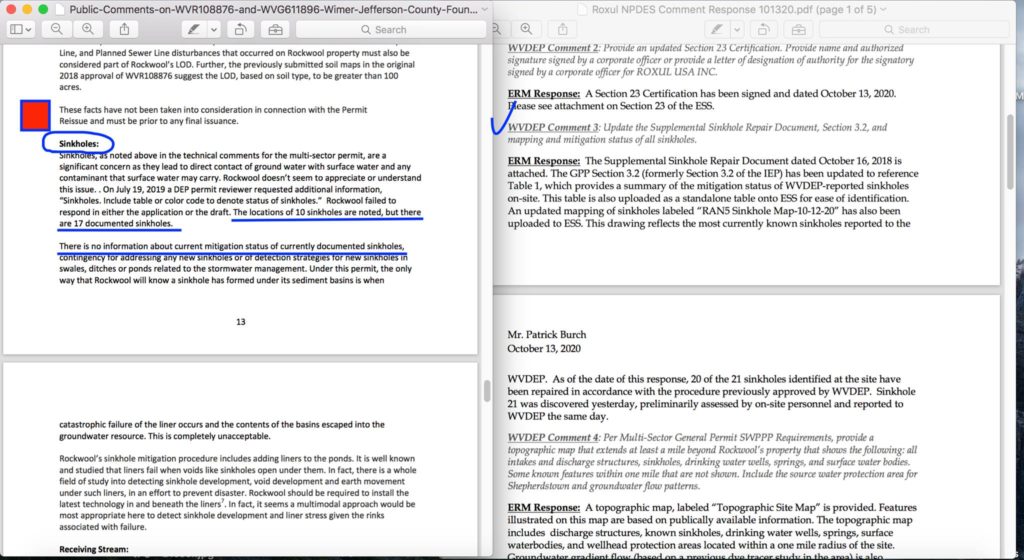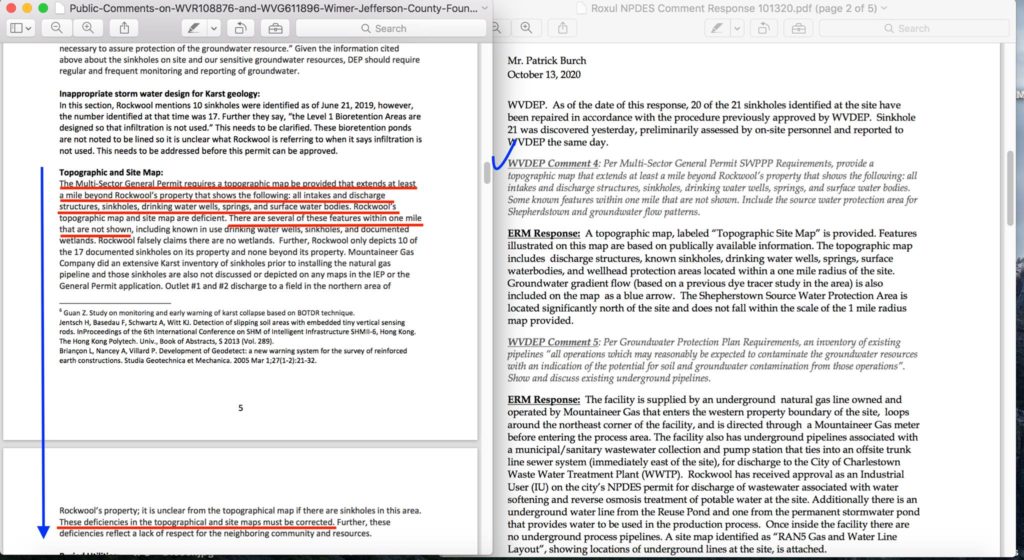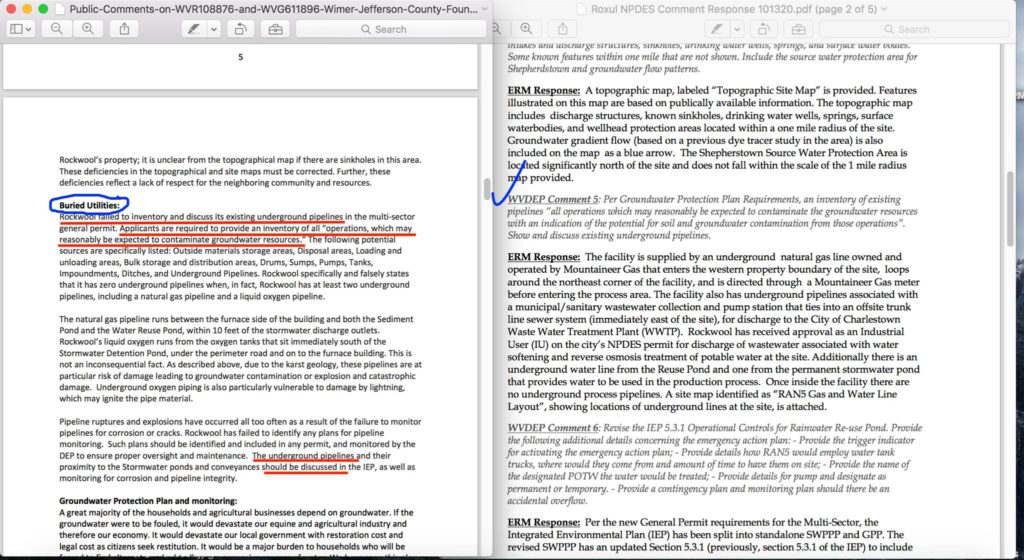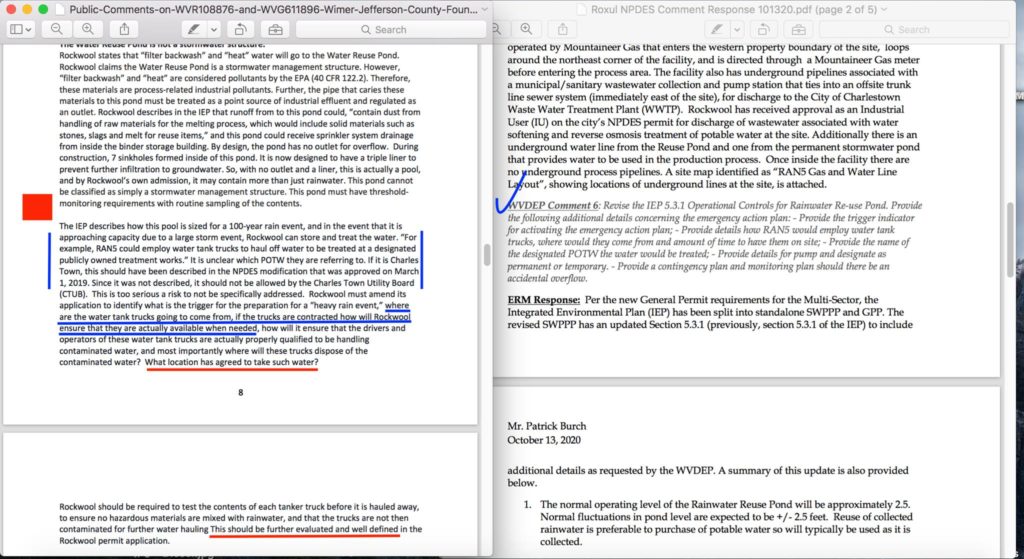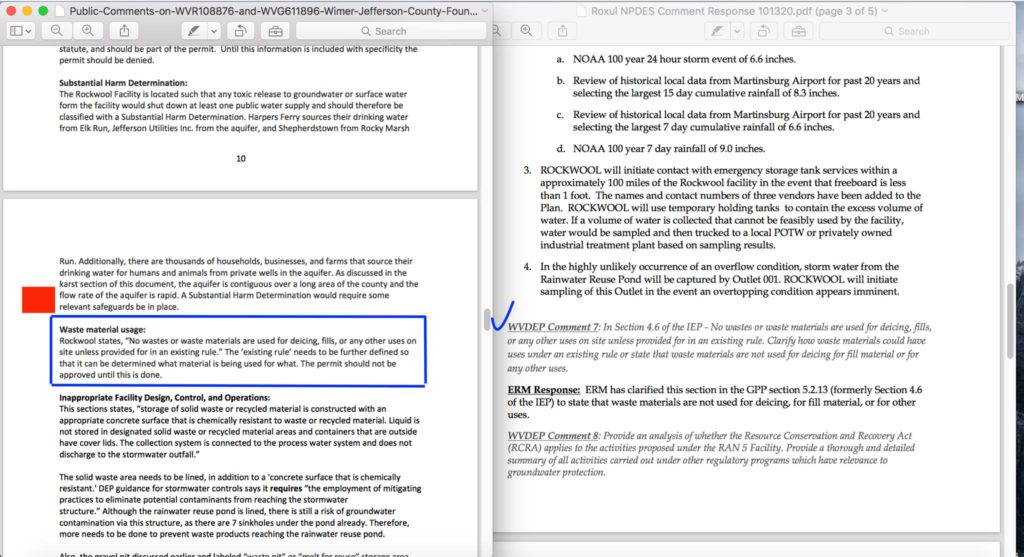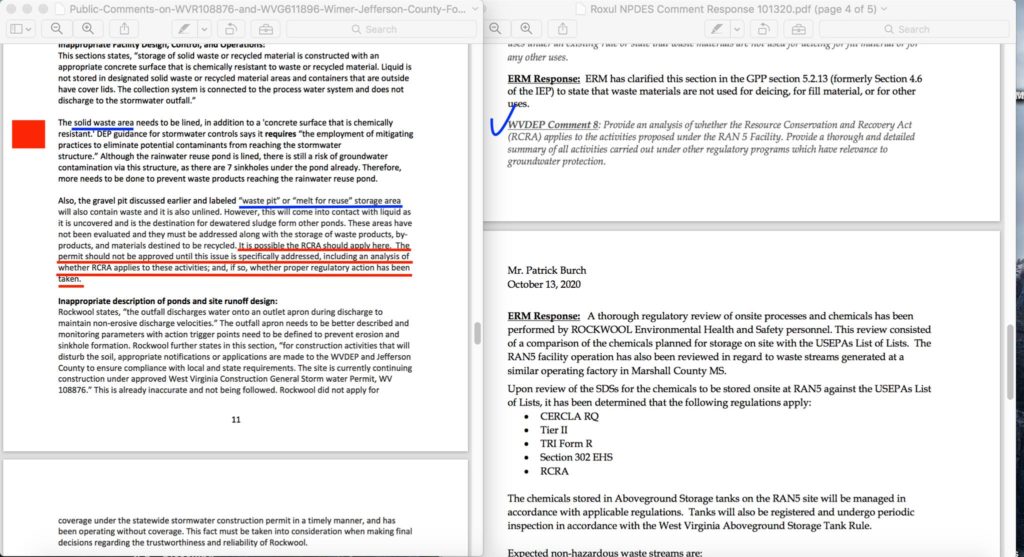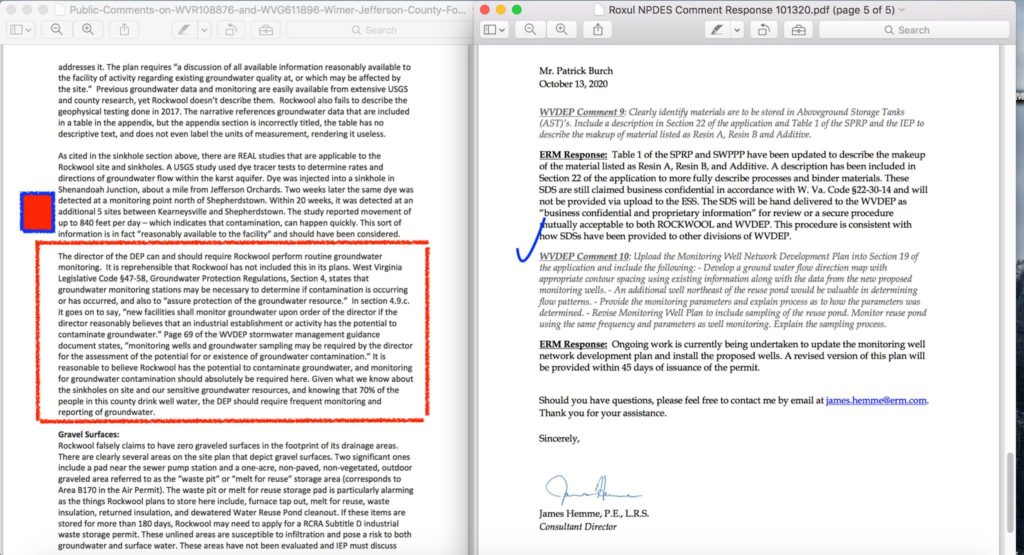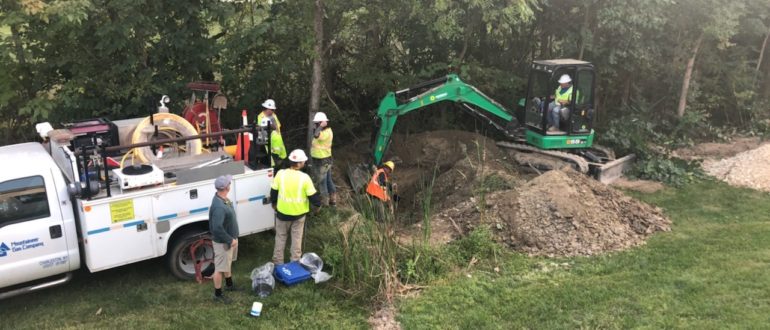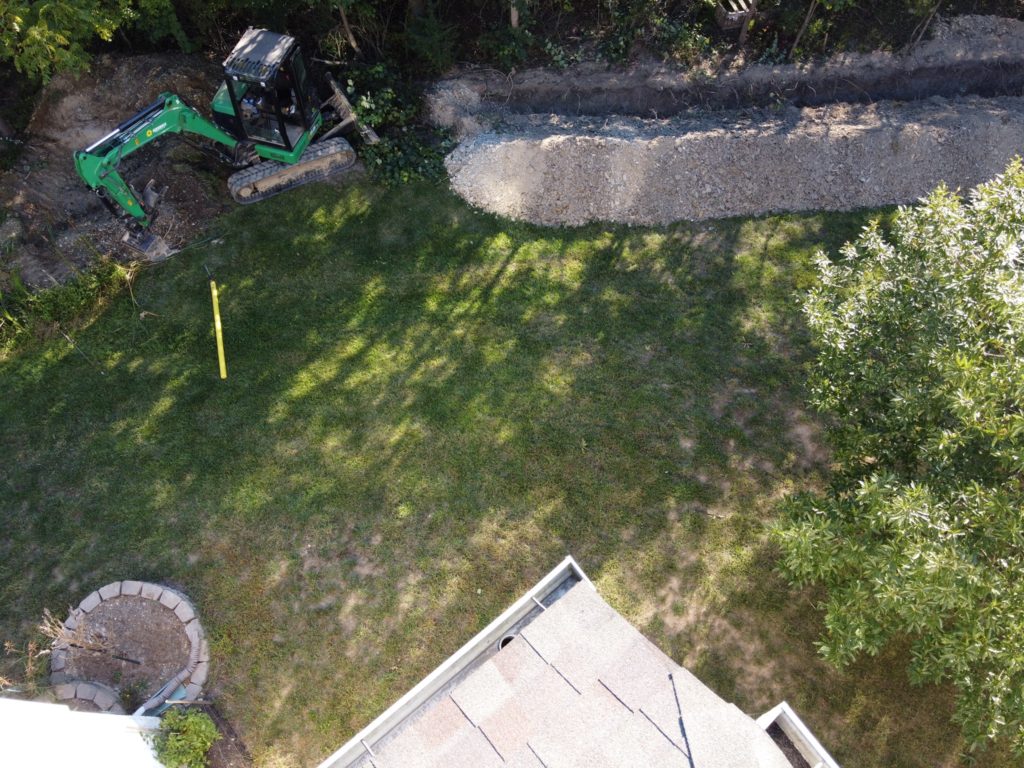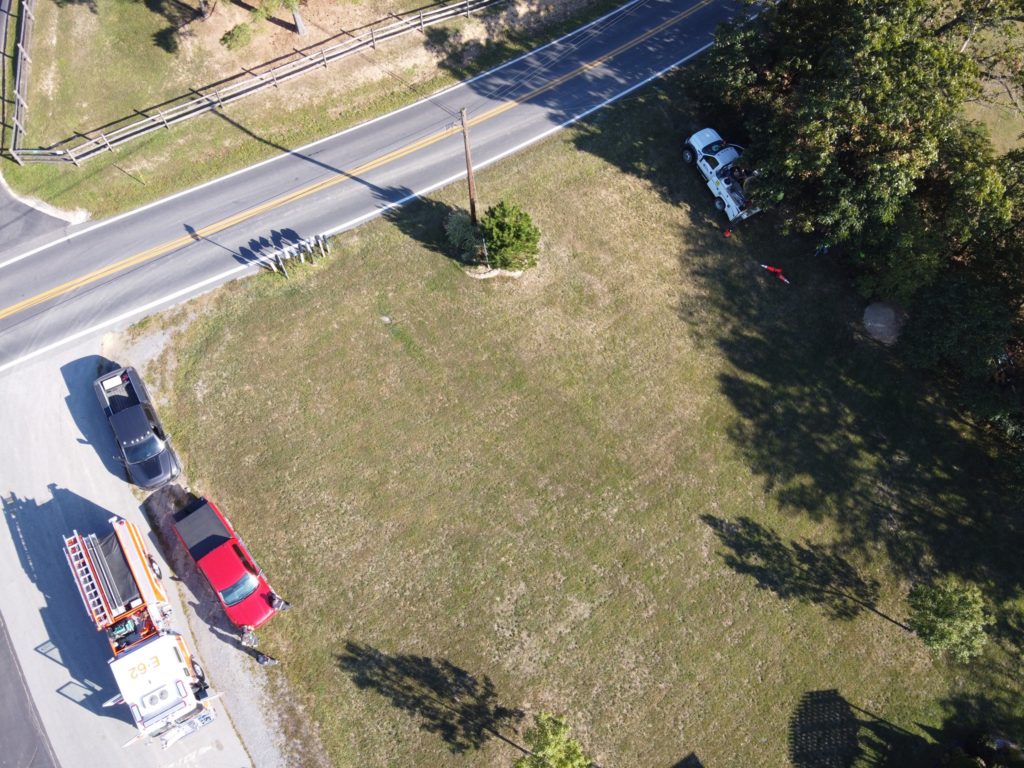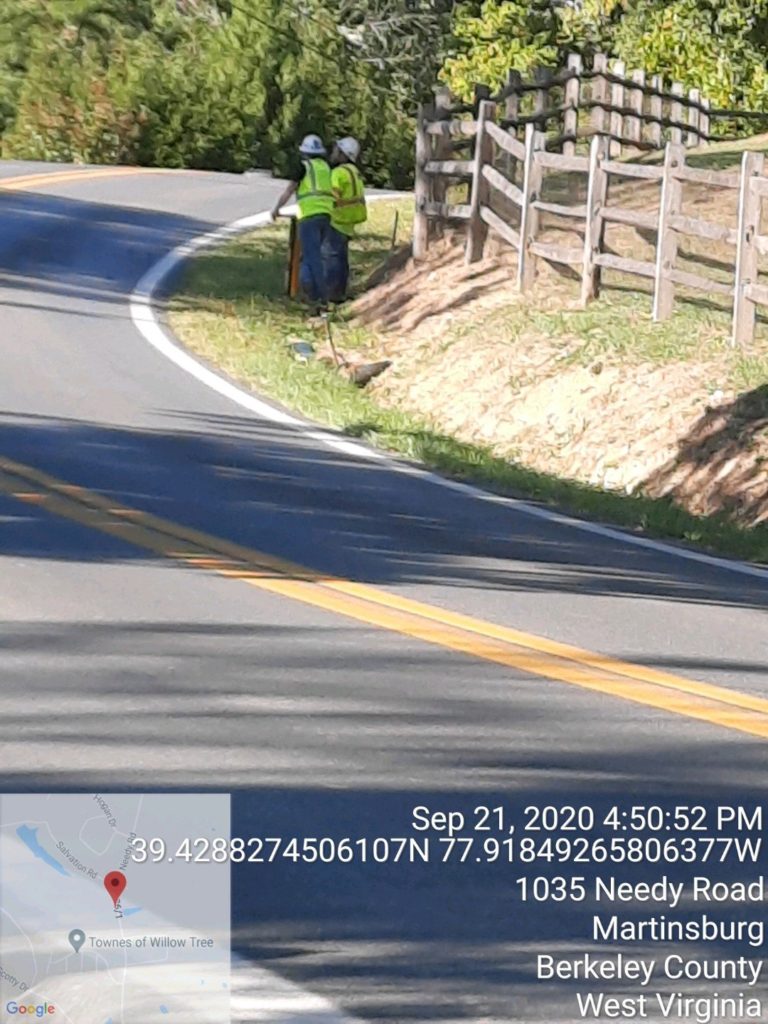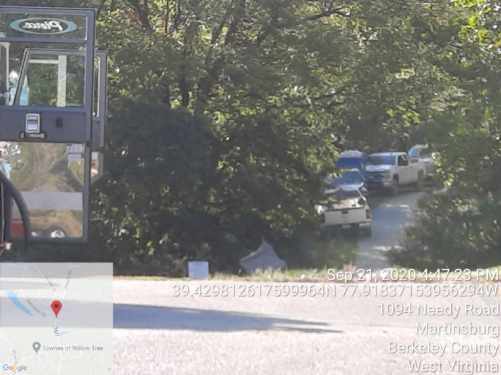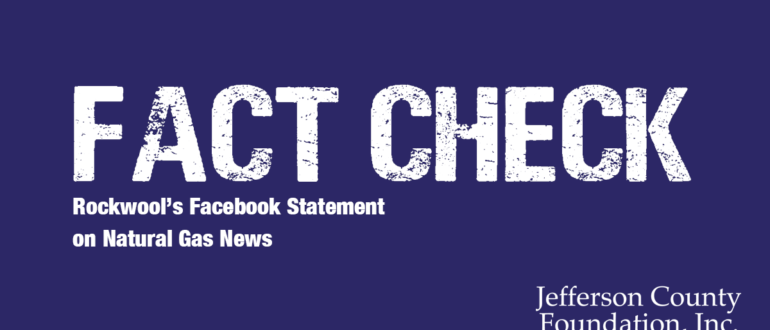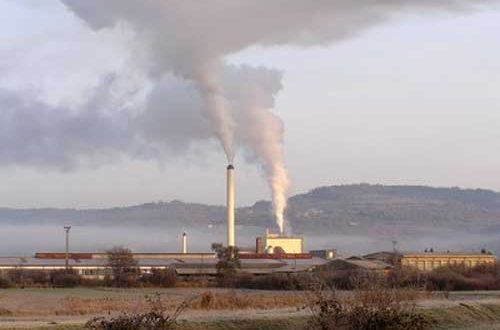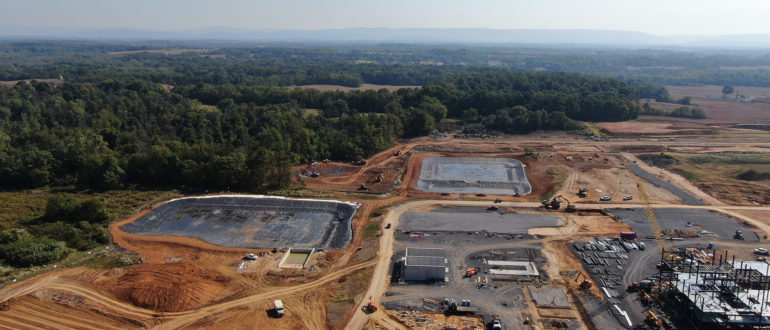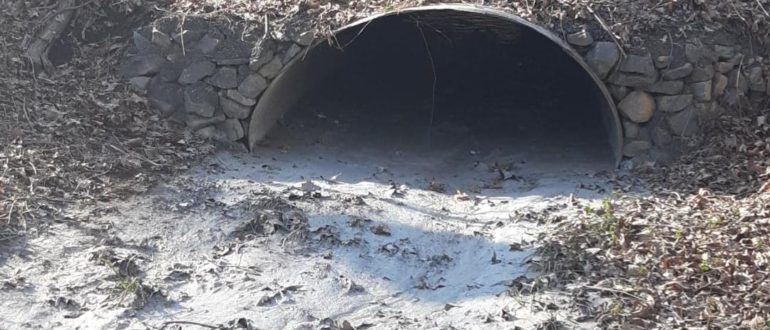The dates for the hearing have been moved from November 12 and 13 to December 10 and 11 due to judge availability. This will be a public hearing and will be open to the public to listen in. In the meantime, the Foundation is working on several new legal challenges to protect the region’s water and hold the DEP accountable. We will keep you updated.
EQB Denies All 5 of Rockwool’s Motions
On October 29, the Environmental Quality Board heard arguments on the pre-trial motions in the Jefferson County Foundation v. WVDEP and Rockwool case challenging Rockwool’s Construction Stormwater permit. Rockwool’s five motions asked the Board to preclude evidence and decide nearly all of the case before evidence is heard. After hearing arguments and reviewing the motions, the Board found IN FAVOR of JEFFERSON COUNTY FOUNDATION and DENIED Rockwool’s motions. The evidentiary hearing is set for November 12 and 13, 2020.
DEP Pushes Rockwool to Answer Many Errors in NPDES Permit
The Good News: the DEP is now taking the Foundation seriously; however, Rockwool is not doing enough to address these concerns.
The DEP is now pushing Rockwool to answer for some of the many errors and issues in their NPDES permit. A recent letter from Rockwool’s hired consulting firm, ERM, goes over 10 comments from the DEP to Rockwool about issues with approving their permit. All 10 of them – every single one of them – came from the Jefferson County Foundation public comment to the DEP from November 2019.
We still need transparency from Rockwool and due diligence by the DEP to ensure the water resources are thoroughly protected.
See the side-by-side comparison
This is the power of public comments. This is the power of holding the DEP accountable through litigation. This is why we continue to put pressure on the DEP to do their job and to hold Rockwool to the standard of the law, the law that protects the natural resources. This is the water that sustains our health, welfare, and local economy, and we will stand up for the residents of this county and region protecting those natural resources.
Mountaineer Gas Explosion Highlights the Lack of Adequate Oversight
There was a natural gas explosion on Salvation Road in Berkeley County on Monday, September 21 sending pressurized gas up to 100 feet in the air—only feet from a residence—which caused all homes and businesses in a 330-foot radius from the blast to be evacuated. The company putting in the gas line to Rockwool, Mountaineer Gas Company, is constructing without any permits on record.
MGC working without a permit
For the last eight months, Jefferson County Foundation, in partnership with the Eastern Panhandle Protectors, has been working to monitor Mountaineer Gas Company’s construction activity on this pipeline. The company is installing a new gas line in the same location as an old, no longer in service gas line so they can utilize the rights-of-way. Several complaints have been filed with the DEP and despite several inspections, Mountaineer Gas has repeatedly convinced the DEP that this construction project is a few segments of pipeline being replaced for safety reasons. In fact, in the inspection report from March 2020, the DEP inspector reported that Mountaineer Gas said they would seek a permit before pursuing the section of pipeline they are currently working on where the explosion was on Monday. Mountaineer Gas has not obtained this permit.
Last week, the PSC told Jefferson County Foundation that Mountaineer Gas was not building pipeline in Berkeley County. The accident is a glaring example that this is simply not true. From a search of the Department of Transportation (DOT) division Pipeline and Hazardous Material Safety Administration (PHMSA) database, it seems they have no registration for Mountaineer Gas building pipeline or distributing natural gas in Berkeley County. A FOIA of the administration for this information has as of yet not been fulfilled yet.
“This incident is an example of the careless manner in which Mountaineer Gas is installing the gas pipeline to Rockwool. We have again and again tried to get Mountaineer Gas to have the pipeline appropriately permitted, but they have refused to do so,” states Dr. Christine Wimer, president of Jefferson County Foundation. “The regulators are all too happy to oblige Mountaineer Gas’s obfuscation of the regulatory requirements. The regulators have abandoned their post of protecting the public. This cannot be tolerated.”
Tracy Cannon, president of Eastern Panhandle Protectors, said, “I was just at the site at 5:00 p.m. and could still smell the gas. I’ve been watching the pipeline construction in the Eastern Panhandle closely for two years now. I’ve often been concerned about what I saw. Mountaineer Gas Company has been installing new pipeline on Salvation Road without removing the old pipeline first. I was worried that something could go wrong, but I’m still shocked that this happened. Thankfully no one was injured.”
Fact Checking Rockwool’s Statement on Natural Gas News
Rockwool recently posted on their Rockwool Ranson Community Facebook page that they are “planning to start operations using natural gas instead of coal.” It’s interesting that they are only now talking about this since they notified the West Virginia Department of Environmental Protection in March of 2020. It has been 143 days. Why the long wait? Maybe it’s because Jefferson County Foundation wrote the DEP and the EPA on Wednesday, July 29 telling them that Rockwool needs to redo their air permit because of their change in operating parameters. Rockwool wants to have a shiny object to distract us from there are major issues here that need to be addressed.
Issues
- Rockwool and the DEP need to entirely re-do the BACT analysis with natural gas as the sole fuel source for the Melting Furnace.
- At minimum a Class II administrative change with public notice needs to be made for this modification or more appropriately an entirely new air permit.
- The DEP and Rockwool need to be transparent about this process including providing all the redacted information from the permit application to the public so the public may adequately evaluate the emission limits and BACT.
What Rockwool Said and What are the Concerns
In their statement from July 31, 2020, Rockwool states:
“That’s right – we’re planning to start up factory operations using natural gas instead of coal.
Converting from coal to natural gas for the melting furnace will significantly reduce the environmental impact of our operations – that’s great for Jefferson County and beyond.”
It is critical to note that Rockwool was planning to use coal not only to fuel the Melting Furnace, but as a raw material, also known as an in-process fuel. The Melting Furnace was meant to be powered by four oxy-fuel burners (natural gas) creating 23% of the energy and five coal burners (burning crushed powered coal) creating 77% of the energy (as measured by MW).1 But they were also using coal as raw material in the actual melting furnace.2 It seems they now plan that they intend to replace these five coal burners with oxy-fuel burners. Are they saying, they plan to use no coal in any process as raw material or fuel of any type – 100% no coal?
There is no way to know for sure, either from their letter or this statement.
The press needs to push: Is Rockwool 100% stopping the use of coal completely in all processes and all capacities? Or, will Rockwool continue to use coal in some capacity, just not to fuel those five burners for the Melting Furnace?
Rockwool states:
“We expect CO2 emissions from the melting furnace to decline by around 30 percent along with reductions in other emissions as well.”
What they don’t say is that the Carbon Monoxide (CO), a regulated emission in its own right, will increase significantly.3 And, what is more important is do they plan to appropriately abate with the Best Available Control Technology, which will actually produce more CO2?
The answer to this is unknown, because the DEP inappropriately accepted this as a Class I administrative change, instead of the Class II administrative change with public notice, this increase in regulated emission legally qualifies for. Rockwool needs to be required to redo the Best Available Control Technology (BACT) for the Melting Furnace. They need to choose BACT that is appropriate for this new emissions profile and have the EPA review it. Therefore, it would be best if they applied for an entirely new permit.
“Converting to natural gas also means less heavy truck traffic, as we will not need any coal deliveries – another win for Jefferson County and the environment.”
We agree! Thank you!
“And in case you’re wondering, Mountaineer Gas will supply the gas via the existing pipeline infrastructure, which is already completed and well-functioning. This conversion will not require natural gas truck deliveries to the factory.”
Wow, really interesting that they waited until the day after the FERC public comment was closed to say this!
Columbia Gas has recently applied for an extension of their Certificate of Public Convenience and Necessity (CPCN) for the Potomac Pipeline. This is a pipeline that will carry fracked gas from Pennsylvania to the Mountaineer Gas line in the Eastern Panhandle gas line extension, which will carry gas to Rockwool. The project was originally permitted in 2018 but was not constructed due to a legal battle with the state of Maryland. This pipeline will cross 19 streams, 10 wetlands, and the Potomac River, which supplies water to over 6 million people downstream of that point. Columbia Gas has always argued that the gas is needed in Jefferson County, i.e. by Rockwool. The Federal Energy Regulatory Committee (FERC) was accepting public comment until July 30 on the extension of the CPCN for the pipeline. If Rockwool had announced this information before the deadline, many of us would have used this information to argue that the gas line does not fulfill a public necessity.
Temporal coincidence?
“That we’re able to convert to natural gas is a result of the highly advanced, proprietary, fuel-flexible melting technology that we’re deploying here. To our knowledge, no one else in our industry has this capability.”
Rockwool is a very old product that has been replaced by products that do not require such environmentally unfriendly practices to make. Many will remember there was once a Rockwool plan there in Jefferson County but it went out of business before most of us were born. So, saying you are doing better than a dying breed is not saying much.
Also, if this is first of its kind technology, then the air permit is completely wrong! The air permit was based on the emissions “proportionally scaled down” from the Byhalia, Mississippi plant. Now we are to understand that the Byhalia plant does not even have the same type of furnace? This means the air permit must be completely redone.
“The air permit authorizing our operations allows for using both fuel sources – and it has always been part of the plan to eventually convert to natural gas for the melting process. We’re extremely pleased that we’re able to start up on gas, thus reaping the environmental benefits of doing so straight away.”
Actually, in the air permit application, Rockwool said that using only natural gas in the Melting Furnace was “technologically infeasible.” According to the Rockwool permit application: the use of only natural gas as a fuel would “fundamentally redefine the process of a coal/natural gas/oxy-fired Melting Furnace.” And in Rockwool’s BACT analysis for CO2e (greenhouse gases) from the Melting Furnace, natural gas as a fuel source instead of coal was specifically excluded, because it was said to be “technically infeasible.”
This means the DEP and Rockwool independently need to redo the BACT analysis for the Melting Furnace considering natural gas as the only fuel sources for the Melting Furnace. Now that Rockwool has admitted they can afford to use natural gas as the sole fuel source in the Melting Furnace and that it is technically feasible to do so. Rockwool should therefore be required to use only natural gas as a fuel source as it is the best available technology for containment of CO2e, and should not be allowed to revert to coal if and when they so choose.
Further, Rockwool’s BACT analysis of NOx for the Melting Furnace, because coal instead of natural gas was being utilized, Low-NOx and Ultra Low-NOx natural gas burners were not considered as a technically feasible option for BACT of NOx for that emissions source. Rockwool needs to be required to use them now.
By having first applied for an air permit and claiming it was technically necessary to operate with coal-burning technology, then at a later date substituting that with natural gas-only technology, Rockwool has avoided appropriate BACT analysis. In doing so, Rockwool achieved being permitted for far more emissions than are necessary for their process, and afforded themselves built-in leniency for their emissions. This kind of deception and disregard for our air quality cannot be tolerated. And certainly, should not be celebrated as some sort of altruistic sacrifice!
Click here to see a video tutorial on Rockwool’s Change in Operating Parameters
1 Rockwool application to Office of the State Fire Marshall for Varience, 4/10/18
2 Information presented at Rockwool Open House in 2018
3 Based on AP-42 – EPA Compelation of Air Emmision Factors and Process Information Standard Reference
Rockwool Changing Fuel Source – Needs New Air Permit
Jefferson County Foundation is calling on the West Virginia Department of Environmental Protection Division of Air Quality (WVDEP) and the federal Environmental Protection Agency (EPA) to have Rockwool redo its air permit due to a change in fuel source. It has come to light that Rockwool notified the WVDEP in March of 2020 that it plans to operate its Melting Furnace using only natural gas.
Background
In a March 2, 2020 letter (click to view) to the West Virginia Department of Environmental Protection (DEP), Rockwool made the DEP Department of Air Quality (DAQ) aware that they were changing their fuel source for the Melting Furnace and will now use natural gas as the sole fuel source.
We are encouraged that Rockwool maybe using less coal in their process. However, there are some really important things to note with this change and there are major issues that must be addressed to ensure the air of our region is protected as much as it could be.
Though Rockwool will stop using coal as fuel in the Melting Furnace, they will still be using coal as a raw material or an in-process fuel. Why don’t we know for sure how much coal? Because the DEP DAQ did not follow up and require that Rockwool define this change further. The DEP reply letter states:
“The Division of Air Quality confirms that on March 4, 2020, we received your letter that provided information on Roxul’s plans to operate the Melt Furnace using only natural gas and without the use of coal. Please note that all applicable conditions in the permit remain in effect.
Should you have any questions, please Mr. Joe Kessler at (304) 414-1271.”
Key Points
That’s it. That’s the letter. You can view the letter from the WVDEP here.
These two letters were posted in a location on the DEP website with a small, seemingly random collection of communications, including only four postings since the final approval of the construction air permit in April of 2018. The DEP didn’t publish these letters on the website until sometime after May 20, 2020.
The issues
While we are encouraged that Rockwool maybe using less coal, this situation creates or highlights three issues that must be addressed by the DEP DAQ urgently.
- Rockwool and the DEP need to entirely re-do the BACT analysis with natural gas as the sole fuel source for the Melting Furnace.
- At minimum a Class II administrative change with public notice needs to be made for this modification.
- The DEP and Rockwool need to be transparent about this process including providing all the redacted information from the permit application to the public so the public may adequately evaluate the emission limits and BACT.
These issues need to be immediately addressed by the DEP DAQ.
1. BACT Analysis Needs To Be Redone
What is BACT?
BACT stands for Best Available Control Technology. It is required on major new or modified stationary sources of air pollution in clean areas (i.e., attainment areas). Jefferson County is an attainment area. Rockwool is a major stationary source of air pollution. They had to conduct a BACT Analysis and present it with their Prevention of Significant Deterioration (PSD) Air Permit Application to DEP. DEP was supposed to do their own version and then compare it with what the company said they though the BACT should be. DEP did not do their part; instead, they took Rockwool’s word.
A BACT Analysis is called a “top-down” evaluation, meaning that one starts with the best controlling technology or mode of operation, including type of fuel. Top-down BACT consists of the following 5 step process:
- Step 1 – Identify all control technologies
- Step 2 – Eliminate technically infeasible options
- Step 3 – Rank remaining control technologies by control effectiveness
- Step 4 – Evaluate most effective controls and document results
- Step 5 – Select BACT
General Requirements
A. Best Available Control Technology (BACT) means an emission limitation (including opacity limits) based on the maximum degree of reduction which is achievable for each pollutant, taking into account energy, environmental, and economic impacts, and other costs.
B. The analysis must be pollutant and emission unit specific with respect to each pollutant subject to a BACT review.
C. Evaluate entire range of demonstrated options, including alternatives that may be transferable or innovative.
D. The level of detail in the control options analysis should vary with the relative magnitude of the emissions reduction achievable.
E. Emission limits should be expressed in pounds/hour (based on maximum capacity) and in terms of process unit variables such as material processed, fuel consumed or pollutant concentrations (e.g., lbs/MMBtu, lbs/gal of solids, g/dscm).
F. Emission limits and work practice standards must be enforceable. Permit conditions should specify appropriate stack testing, continuous emission monitoring, continuous process monitors, recordkeeping, etc.
Impact Analysis
Here are some examples of where energy, economic, or additional environmental impact can be factored in, resulting in a high-ranking, technologically feasible BACT to be excluded.
- Energy
Natural gas for operating an afterburner is not available based on local regulations. - Economic
- The increased cost of the final product (e.g., automobile, cement, coke, etc.) would increase to a level so that the entire project would no longer be feasible.
- The increased cost is way out of proportion to the environmental benefit. (e.g., the increased cost of going from 93% to 94% control increases the capital cost from $2,000,000 to $4,000,000 and the operating costs from $500,000/year to $1,000,000/year but reduces the emissions of nitrogen oxides by only 50 tons per year.)
- Environmental
A wet scrubber may create a by-product which cannot be disposed of without creating a more detrimental impact.
In the original BACT analysis for the Melting Furnace, Rockwool claimed that using natural gas as a sole fuel source was “technically infeasible.” Specifically, because Rockwool claimed this, they were allowed to used coal, despite the fact that this has higher emissions of CO2e, and SO2. Now that Rockwool is admitting that using natural gas as the sole fuel source for the Melting Furnace is technically feasible and affordable, they must be REQUIRED to do this as it is the best available technology to reduce emissions.
Because Rockwool was not considering using natural gas as the fuel source for the Melting Furnace, they did not consider the best available technology for controlling emissions from the natural gas burners. This must now be done to further limit emissions. For example, the best available technology to limit NOx from natural gas burners is the use of Low or Ultra Low-NOx burners. This was not considered by Rockwool or required of them because, again, this was not considered a technically feasible fuel source.
Natural gas burners actually produce more carbon monoxide than does coal combustion. Therefore, this must be evaluated to ensure the best available technology is being used to maximally control the emissions of carbon monoxide. In this case, oxygen is being used and may be required at a higher rate to account for the increased CO emission.
By having first applied for an air permit and claiming it was technically necessary to operate with coal-burning technology, then at a later date substituting that with natural gas-only technology, Rockwool has avoided appropriate BACT analysis. In doing so, Rockwool achieved being permitted for far more emissions than are necessary for their process, and afforded themselves built-in leniency for their emissions. This kind of deception and disregard for our air quality cannot be tolerated. Further, it is clear that one cannot rely on the Title V permit (operational air permit) process to provide a backstop protection for these insufficiencies, as Rockwool has been operating in Byhalia for over five years and has yet to obtain a Title V permit.
The BACT analysis must be redone in light of this new information, that natural gas is now technically feasible for use in the Melting Furnace, so that Rockwool is required to use the truly best available technology and incorporate more appropriate emission limits into the permit.
How much does the Melt Furnace contribute to the emission of the plant at Rockwool Ranson?
We know from the Fire Marshall that 77% of the power for the Melting Furnace was being provided by coal and 23% was being provided by natural gas. This is a change of 77% in the highest emission source for most emissions.
| Emission (pollutant) | % of total emissions from Melting Furnace | Tons Per Year From Melt Furnace | Total Tons Per Year Produced by the Plant |
|---|---|---|---|
| NOx | 67% | 163.37 | 274.31 |
| SOx | 100% | 147.31 | 147.31 |
| Acid gas (H2SO4) | 100% | 16.37 | 16.37 |
| Greenhouse Gas CO2e | 62% | 95,547 | 152,933 |
| PM10 | 23% | 36.01 | 155.59 |
This fuel change represents a 77% change in the emissions source that creates 70% of the plant’s overall emissions.
2. Rockwool needs a new air permit!
At very least, this needs to be considered a Class II administrative change with public notice. 45 C.S.R. 13-4(2)(b), requires that a “Change in a permit condition as necessary to allow changes in operating parameters, emission points, control equipment or any other aspect of a source which results in an increase in the emission of any existing regulated air pollutant or any new regulated air pollutant; or” requires a Class II modification. This description is met by this change and, therefore, a Class II administrative change with public notice should be conducted.
This will require a change in operating parameter, as the Melting Furnace will now be using only natural gas as a fuel. While Rockwool says that this was previously approved, in the publicly facing documents of the air permit there was no specific approval of natural gas for use in the Melting Furnace. If there in fact was approval of this, then several other required steps were omitted (as outlined in the letter).
As already discussed, the control equipment will need to be changed based on a new BACT analysis. This is critical to keep air emissions as low as possible.
This change in fuel source will result in an increase in emission of CO (carbon monoxide)[1]. CO is an existing regulated air pollutant.
Because this change in operating parameter will require a changing control equipment and result in an increase in emission of a regulated air pollutant, a Class II administrative change with public notice is required. This was not done and it must be corrected. Due to the BACT needing to be redone as noted previously, EPA review is required and, because a majority of the emissions come from this source (Melting Furnace), it would be most appropriate to require Rockwool to do an entirely new permit.
[1] According to AP-42 – EPA Compilation of Air Emission factors and process information standard reference for air permitting since 1972. https://www3.epa.gov/ttn/chief/ap42/ch01/
3. Transparency and Due Diligence
The original permit
The Clean Air Act and state regulation prohibit redaction of any information that meets a broad definition of “emissions data.” Rockwool and the DEP obfuscated this requirement by including much of this information by citation only. This information was cited in the PSD application where much of the information was redacted from public view. This information must be provided to the public so the public can property evaluate the BACT and emissions limits.
Notifying the Public of this change
It is not clear why this recent and important communication was posted in a seldom viewed location with seemingly random communications or how the public would have known that this is the location they should have been watching for such information.
Rockwool must provide more information about this change
The DEP’s response letter seems intentionally vague and invites further non-written communication. This overtly limits public awareness of the process and implications of such actions. The DEP handling of this thus far perpetuates the lack of transparency and lack of due diligence that has plagued the agency’s handling of the Rockwool project from the start.
What Needs to Happen
We ask that a Class II administrative change with public notice be conducted or Rockwool be required to seek an entirely new air permit, that the BACT analysis be repeated by both Rockwool and the DEP independently, that EPA be advised of these significant permit changes, and that the process be conducted in an open and transparent way including making all cited redacted material available to the public.
Legal Update—July 5, 2020
The Foundation’s legal and regulatory team is hard at work on multiple fronts with the common objective to protect Jefferson County from the threat of heavy industry.
This update summarizes some of our current legal actions aimed at two key areas:
This work involves analysis of highly-technical and complex topics and it requires consistent and persistent attention because unfortunately our opposition is clever and well-resourced.
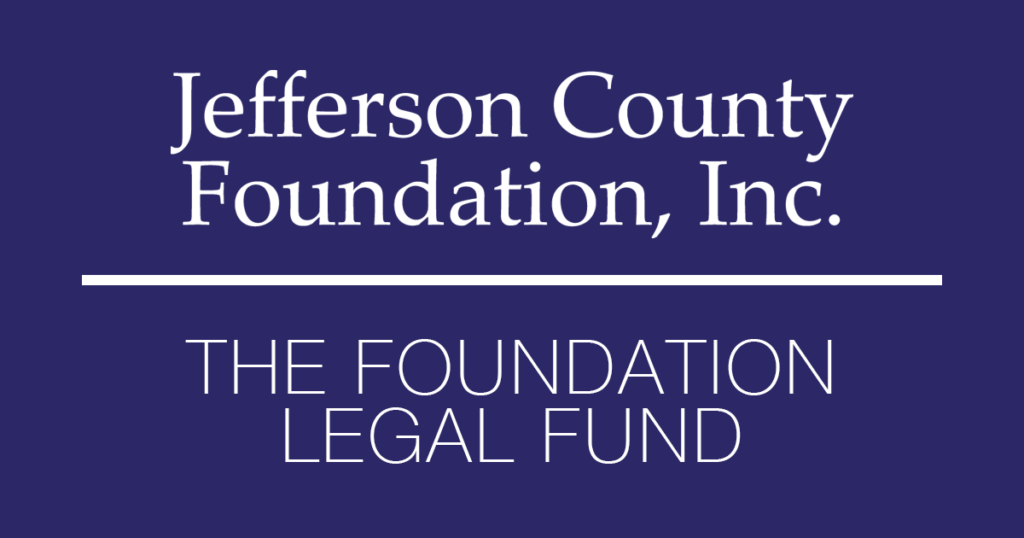
Thankfully, generous donors and hard-working volunteers are making our work possible, and we are making progress. If you agree that heavy industry threatens our region’s health, environment, and economy, please show your support by making a fully tax-deductible contribution to THE FOUNDATION LEGAL FUND. Help us keep up the fight!
Environmental Permit Cases
Rockwool claims one of the reasons it located in Jefferson County, WV was the “regulatory environment” and “permitting considerations.” Seems that it got what it came for, unfortunately. Our team has discovered, and is challenging, multiple examples of Rockwool’s being allowed to cut corners and ignore standards and rules that are meant to protect us from contamination of our ground and surface waters.
Background
In order for any entity to disturb more than an acre of ground, a valid stormwater permit is required to protect the ground and surface waters of our region.
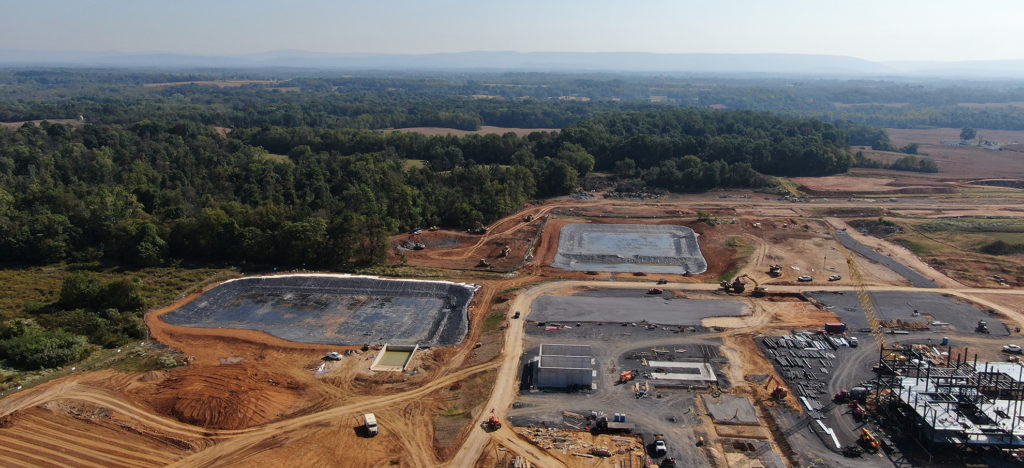
When Rockwool’s application for coverage under the construction stormwater General Permit was originally submitted, it was reviewed for only 11 days before approval. In its evaluation of the permit registration application, the Department of Environmental Protection (DEP) failed to note that:
Most egregiously the DEP allowed Rockwool to avoid public comment and notice by failing to require Rockwool to correct its reported “limit of disturbance” and its absurdly short (21 week) construction timeline.
In addition, the DEP did not require Rockwool to reapply for a stormwater permit as mandated, any of the several times their permit was modified. Then the DEP allowed Rockwool to operate without a valid permit for almost a year. These maneuvers further blocked the public’s ability to have input on Rockwool’s stormwater discharge management plan.
Rockwool finally reapplied for coverage last fall and repeated all of the errors noted above. Despite ample public opposition and scrutiny most of the public comments were only addressed in a cursory way and the permit was approved by the DEP. Jefferson County Foundation is appealing this permit (see below).
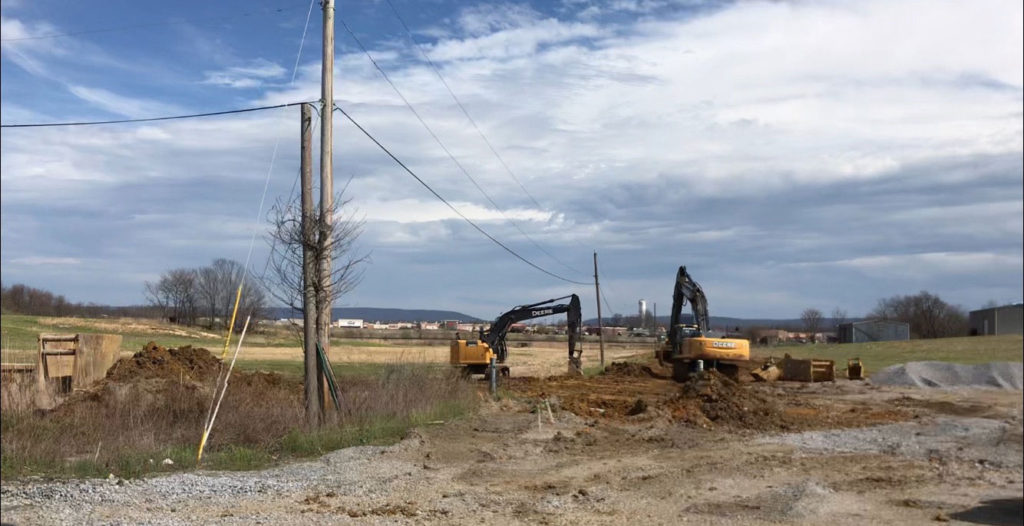
There is another stormwater permit-related set of issues. In 2019 when the DEP attempted to issue a new NPDES construction stormwater General Permit, that would have imposed more stringent requirements on both Rockwool’s construction project as well as the construction of the Rt. 9 “Super Sewer” to Rockwool project by Charles Town, David Yaussey (a prominent industry-side lawyer who represents Rockwool and multiple companies and associations in the state) filed an appeal to loosen or eliminate these requirements. The EPA, which must approve the changes, said “no.” What did the DEP do then? It disregarded the EPA, and issued an Order that allowed Charles Town to ignore the 2019 permit requirements. The DEP did the same thing for 697 other entities. Now Charles Town is building the Rt. 9 Sewer without a karst mitigation plan as required by the 2019 NPDES permit.
The Foundation’s Legal Challenges to These Environmental Permits
Jefferson County Foundation, and several citizens, have now sued the DEP in both cases – and the WV Environmental Quality Board (which hears initial appeals of DEP actions) has allowed all the players into the lawsuits: Charles Town and CTUB, represented by Steptoe & Johnson; Rockwool represented by Spillman, Thomas and Battle, the lawyers who routinely threaten to sue anybody who threatens Rockwool; and Lee Snyder, represented by Jackson Kelly. This is some heavy legal firepower lined up against our efforts to hold DEP and Rockwool accountable for compliance with the law and the protection of our waters.
But we are making progress and are fully engaged. Last week we filed over 2,000 pages of documents and answered over 60 legal discovery questions filed by the other side seeking such ridiculous and harassing information as the Foundation Board members’ septic tank maintenance records! And, the Foundation just filed our own discovery requests, seeking information about how the DEP could allow these projects to proceed without valid permits. We have asked the EQB to allow us to take a dozen depositions of employees of Rockwool, Snyder, CTUB, and the DEP. We have hired an expert in karst hydrogeology and our technical team members are analyzing the 1,000 pages of certified DEP record in both cases. We are represented by Chris Stroech of Arnold & Baily with help from the Foundation’s team of permitting experts, pro-bono lawyers, and other volunteers,
Both permitting cases are set for hearing in October and November, with deadlines and legal filings due every few weeks before then.
Environmental permits are required for a reason – and the DEP’s willingness to be bullied by the big law firms into sacrificing our water quality in favor of corporate desires for leniency, needs to be exposed and stopped.
Want more information? See our filings here.
Rockwool and Its Taxpayer-Subsidized “Free Money”
In 2019, without addressing the constitutionality of state tax incentives for Rockwool, Circuit Court Judge David Hammer ruled the original Payment In Lieu Of Taxes (PILOT) agreement that Rockwool had entered into with the Jefferson County Development Authority and other regional and local entities was invalid. Not to be deterred, Rockwool sought and obtained a tax-advantaged arrangement, providing for the issuance of up to $150 million in state-backed bonds, through the Charleston-based state agency, the WV Economic Development Authority, again without notice to the public.
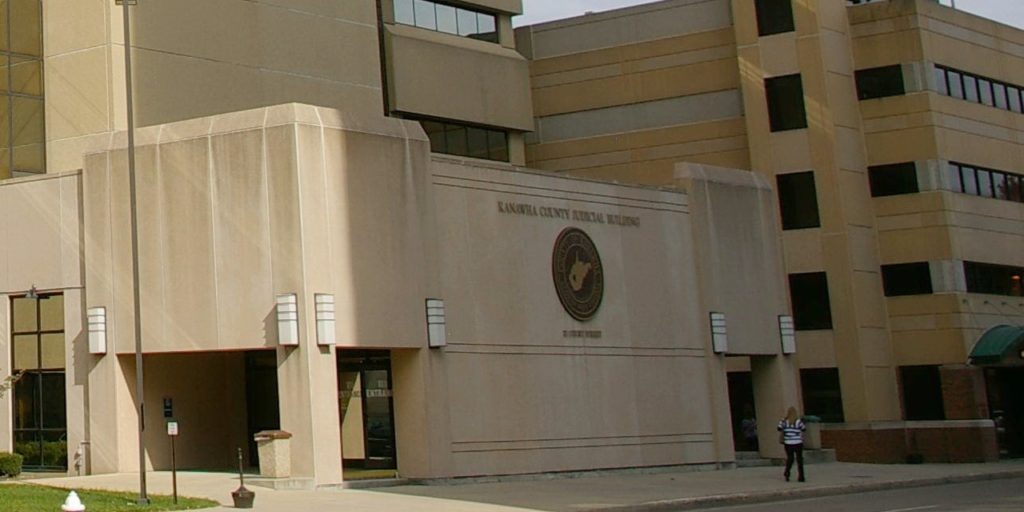
On April 23, 2020, the Jefferson County Foundation filed suit in Kanawha County Circuit Court challenging the constitutionality of the agreement between Rockwool and the WVEDA.
Notably, this agreement relieves Rockwool of state and local tax obligations for its property and equipment for 10 years.
Rockwool and its allies have filed two motions in response to the Foundation’s challenge: a motion to dismiss and a motion to move the case to a specialized “business court” where presumably it believes it will receive a more favorable hearing. Jefferson County Foundation has filed responses to both motions and are awaiting the court’s rulings.
Rockwool is represented by the law firm of Spilman Thomas & Battle. The Foundation is represented by Chris Stroech of Arnold & Bailey, Robert Bastrass III of DiPiero Simmons McGinley & Bastrass, and noted constitutional law professor Robert Bastrass, Jr.
The outcome of this case will have statewide implications and we are committed to seeing it through. The West Virginia Constitution promises that everyone will be taxed fairly and equitably. The scheme under which Rockwool gets 10 years’ worth of no property taxes is neither fair nor equitable, and it is not constitutional!
For more information on the Foundation’s challenge to the constitutionality of Rockwool’s tax break, see the filing here.
Support Our Efforts
If you agree that heavy industry threatens our region’s health, environment, and economy, please show your support by making a fully tax-deductible contribution to THE FOUNDATION LEGAL FUND. Help us keep up the fight!
Moving Forward On Rockwool Permitting Issues
Jefferson County Foundation continues to stand up for the protection of the ground and surface water resources in Jefferson County and the surrounding region. We’re pushing forward this week on several permitting issues related to Rockwool. If you want to help support our legal efforts, please consider making a fully tax deductible donation: http://bit.ly/33yxyKc
Appeal of the DEP Order Filed
On April 1, 2020, Jefferson County Foundation filed an Appeal with the Environmental Quality Board of the DEP Order that is allowing the City of Charles Town to construct the super sewer to Rockwool without a Construction Stormwater General Permit registration. The City started work on the super sewer to Rockwool 17 days after they submitted the application for this registration. This application required review by the DEP and a 30-day public comment period, which the City clearly did not intend to wait for. The Foundation filed several complaints of this work without a permit. Instead of requiring the City to stop work until the permitting process was complete, the DEP gave an Order allowing the City to continue to work without a permit. This Order allows them to work under void permit conditions, and self regulate. Despite multiple complaints to the DEP, Snyder Environmental, under the supervision of the City, continues to fail to meet even the minimum standards. Read the appeal: https://bit.ly/3awAr2F
Make a difference – Submit a public comment on Charles Town’s Construction Stormwater General Permit Registration application
This permit is woefully insufficient to protect the ground and surface water of Jefferson County and beyond from contamination now and into the future. Please go to the Make a Difference page and send a public comment on the registration application to the DEP. Go here: http://bit.ly/30n6UV3
Submission of the Ranson Petition
Jefferson County Foundation supported the citizens group that submitted the petition to decrease the corporate limits of Ranson by removing the pipe stem annexation of Tackley Mills and Jefferson Orchards. This petition will trigger a vote in Ranson in which all registered voters can vote. If a majority of voters want this land to move back to the County, then it will go back to the County. This will give the people who live in the county right around this land a say in the development and oversight of this sensitive land right next to their house. This will also prevent Ranson citizens from paying for services to an industrial area out in the county. We hope the county will better represent the wishes of the people and lead the development of this land in a responsible direction.
EQB Hearing Date is Set
The Environmental Quality Board has set a hearing date for Jefferson County Foundation’s appeal of Rockwool Construction Stormwater General Permit. The hearing has been set for July 9 and 10.
Millville Quarry Update
Following complaints from Jefferson County Foundation to the DEP about Millville’s discharge to the Shenandoah River, a DEP inspector performed an inspection on March 11. Millville had 20 days to resolve the violations as set out in the inspection report. On repeat evaluation by the same inspector this week, Millville had improved some of the issues but had not resolved them all, including removing the limestone sludge form the stream bed tributary of the Shenandoah. They have been given until Monday to resolve the violations. We will be monitoring.
Appeal filed with the WVEQB regarding Rockwool’s Construction Stormwater Permit registration
Today, Jefferson County Foundation filed an appeal of Rockwool’s Construction Stormwater permit registration with the West Virginia Environmental Quality Board. The Foundation is standing up for the protection of the ground and surface water resources in Jefferson County and the surrounding region.
The DEP has allowed Rockwool to operate on this original permit from its first issuance on October 19, 2017 until February 25, 2020. Several times, the DEP neglected to require Rockwool to apply for and obtain a re-registration despite significant modifications to the permit, including increased limit of disturbance, grading beyond one year, and significant modification to the permit by addition of a sinkhole remediation plan. By doing so, the DEP eliminated every opportunity the public had to give input on and point out the inadequacies of this permit to protect our vulnerable groundwater resources. This has allowed Rockwool to construct for over two years without correcting these major errors in its stormwater design.

DEP’s initial review of Rockwool’s Construction Stormwater permit application was insufficient and left our water resources vulnerable to contamination during construction and in the years to come. Rockwool failed to provide adequate and accurate information in their application allowing them to avoid public notice and public comment in October 2017 on this original permit. Specifically, they did not follow the requirement for reporting their limit of disturbance; they reported it as 98.9 acres and failed to include the acreage from the common plan of development as is required in the permit conditions.

All projects over 100 acres are required to go to public notice and public comment. Rockwool claimed the construction of their plant would only require 24 weeks (recall they started on November 1, 2017 and is still not complete!). All projects with grading lasting greater than one year require public notice and public comment. By misreporting and misrepresenting this information, Rockwool was able to avoid public notice in more ways than one in Fall 2017. Had they had public notice, we may have been aware of this project prior to the sneaky publication of the air permit notice the day before Thanksgiving in 2017, and we may have been looking for it, giving us the opportunity to challenge it at the time. Furthermore, it strains credulity to think the DEP did not realize that these two parameters were drastically underreported. The DEP should have required the limit of disturbance include the common plan of development and should have required public notice and public comment in October 2017.
The Foundation is pursuing every available means to correct this situation and protect the vulnerable groundwater resources in Jefferson County and surrounding region.
Thank you to all that have donated in support of our legal fight against Rockwool. If you would like to contribute, please go to bit.ly/33yxyKc
Pushing Back Against Illegal And Unfair Tax Schemes
It has been a busy March for Jefferson County Foundation and we wanted to update you on some of the things we have been working on.
On March 11, the Foundation sent notice that its intends to file suit in Kanawha County Circuit Court to block the state from illegally exempting Rockwool from real and personal taxes on a proposed industrial facility in Jefferson County. On May 2, 2019, the West Virginia Economic Development Authority (WVEDA) authorized the issuance of up to $150 million in lease revenue bonds for a term of up to 10 years, during which the WVEDA would hold title to Rockwool’s Jefferson Orchards property which includes approximately 130 acres of land. The Foundation’s complaint asks for the invalidation of the WVEDA’s May 2 action including cancellation of plans for any government agency to take title of the Rockwool property. Read the full story here.
On March 2, Jefferson County Foundation filed an official complaint with the WVDEP because work had been started on the Route 9 sewer project without a valid Construction Stormwater Permit, and an appropriate public notice sign had not been posted. The permit writer required CTUB to fix the public notice sign and correct the permit application to reflect that public notice and comment were required based on the length of the project. Unfortunately, several days later, the WVDEP issued an order that will allow the Route 9 sewer installation to continue without a Construction Stormwater Permit. We are continuing to monitor the project closely and evaluating the options going forward. See the notice here.
On March 6, the Foundation filed an official complaint with the WVDEP detailing what was perceived to be an illegal discharge from the Millville Quarry into the Shenandoah River. A WVDEP inspection on March 11 of the site revealed the discharge was in fact coming from the Millville Quarry and a notice of violation was issued to the Quarry. We appreciate the WVDEP Division of Mining and Reclamation pursuing this in a timely and definitive manner. See the investigation and complaint here.
On March 13, the Foundation filed an official complaint with the WVDEP, the WV Department of Natural Recourses, and the US Army Corp of Engineers detailing what seems to be an illegal discharge into the Opequon Creek and other Clean Water Act violations from a construction site where Mountaineer Gas is installing natural gas pipeline to connect Rockwool to natural gas. The complaint asked that an inspection be done and work be stopped until these violations were addressed.
On January 27, the Foundation requested that an inspection be done at the Rockwool facility, because several new sinkholes had been reported to the Foundation. The WVDEP conducted an inspection in early February of Rockwool and the adjacent DOH project being conducted by Ranson and performed by Jefferson Asphalt – Northport Station road extension. While the inspectors found several violations related to sinkhole remediation, they did not issue a notice of violation to Rockwool. They said that it was because Rockwool was able to fix the violations during the visit. However, the Northport Station project had several volitions resulting in a notice of violation. See the notice of violation here.
If you are interested in supporting this work, please consider making a fully tax deductible donation. For more information on how to do this, please visit our donation page.


